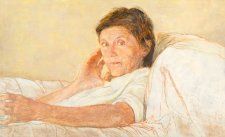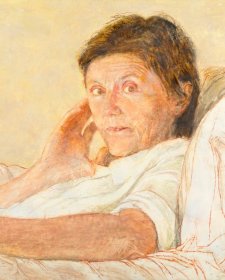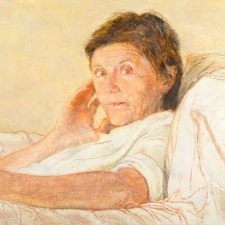I have gone around saying that I’ve lost friends because of things I’ve written. But when I think about it really well, I haven’t lost any friends at all. I’ve lost people who were acquaintances, or people who … And people who … real friends who’ve seen themselves in my books have taken it on the chin, you know, in a very remarkable way.
I mean there is a character… there is a person on whom the character of Javo is based. You could imagine that perhaps such a person’s life might have been altered in some way by the publication – well not the publication of the book but by the book’s success and by the amount of publicity that it’s had. He seems to me to be such a trouper about it. We very rarely see each other, but … he’s in America but he came to see me a few weeks ago, the day before he left for America, I hadn’t seen him for a long time, I hadn’t seen him since before the film was made, and he hadn’t seen the film. But he came for a visit and we just sat around, talked, had a cup of coffee, talked of what work he was doing, and this and that. And then one of us mentioned the name Monkey Grip and we both just burst out laughing. It was very encouraging and heartening because I realised that he didn’t hold anything against me, and, rather the opposite, I think he rather liked the book. And he co-operated with the director of the film, he gave a lot of help to Ken Cameron in the making of the film, which I really loved him for and admired him for.
And I think that this question of the autobiographical element or the biographical element in fiction, where people see themselves represented, or misrepresented in their view, by a fiction writer, it’s a very difficult matter, particularly in women’s writing I think. Because women do tend, at least at this point in history, to write from very close to themselves. So it’s always going to be a problem and I think it’ll continue to be a problem for me. And I don’t regret anything I’ve written.










